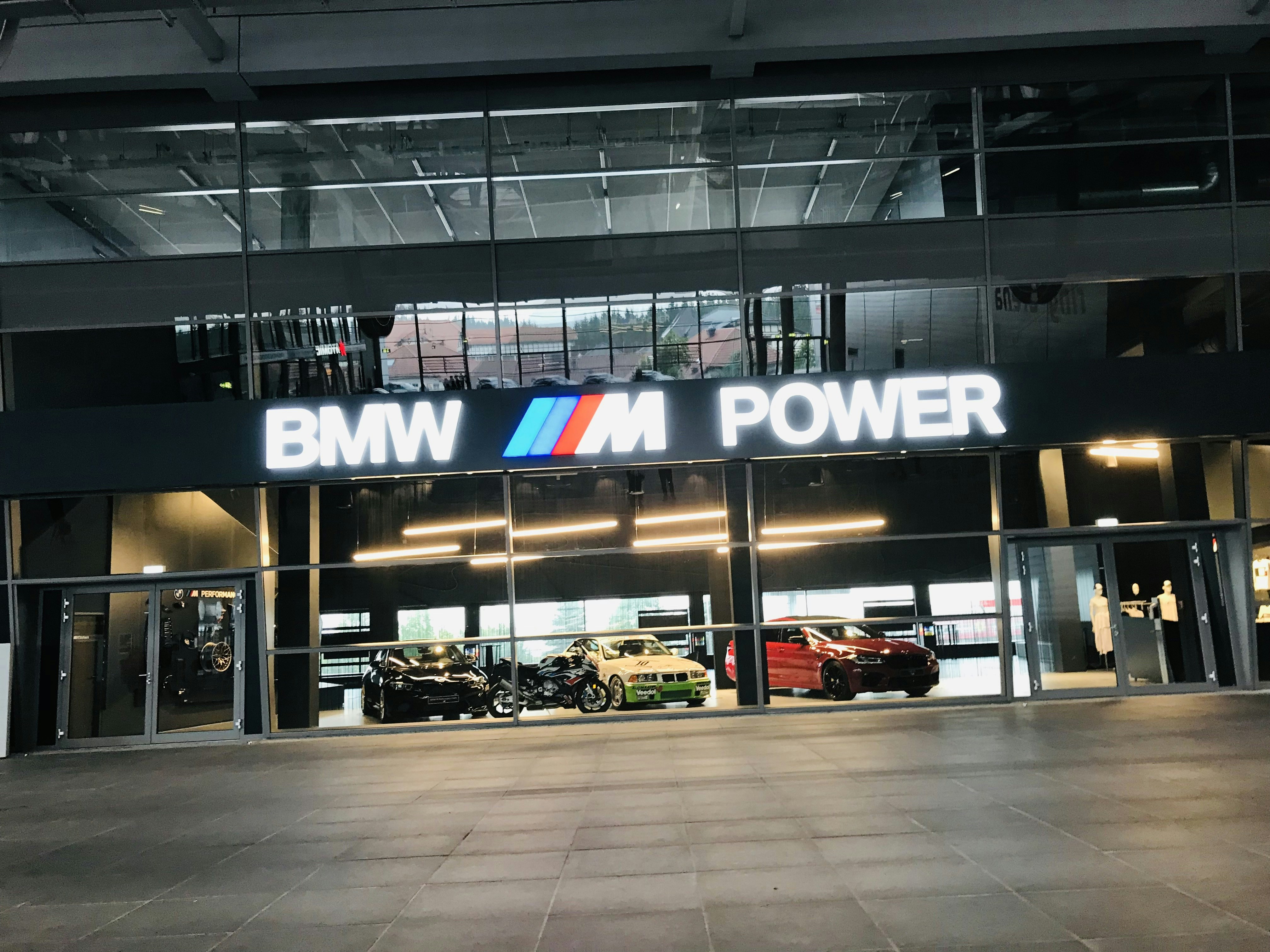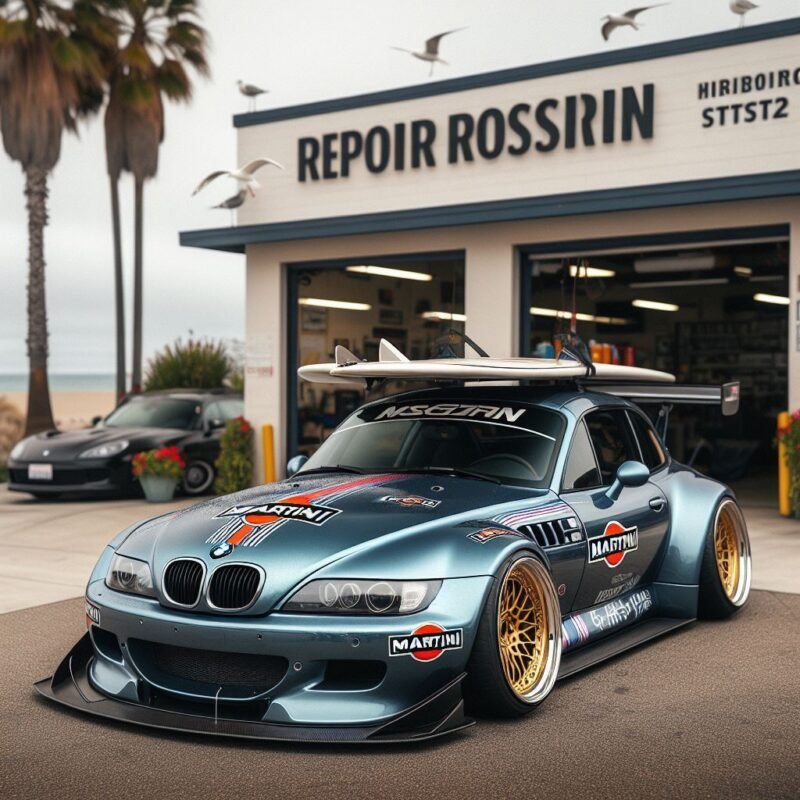Automotive
BMW M240 vs M235: Performance, Value, and Resale Comparison for 2025

Introduction to BMW M Models
The BMW M models have long stood as the pinnacle of the brand’s performance-oriented offerings, showcasing a remarkable blend of luxury, agility, and speed. Among these highly regarded models, the BMW M240 and M235 serve as compelling entries within the lineup, catering to driving enthusiasts who seek an exhilarating experience without sacrificing everyday usability. Both the M240 and M235 are positioned strategically within BMW’s lineup to offer enhanced performance attributes while maintaining a keen sense of value.
The BMW M240 is an evolution of the M235, reflecting a transition to a more powerful and refined driving experience. With its turbocharged engine and sporty design, the M240 elevates what many loved about the M235. As we approach 2025, it is vital to compare these two models, focusing on their performance capabilities and overall value proposition.
In the realm of performance, the M3 and M4 models also play a pivotal role, serving as benchmarks against which the M240 and M235 can be measured. These flagship models exemplify technological advancements and peak performance within the BMW M division, setting high standards for sports cars. Their potent engines and cutting-edge engineering influence the design choices made in the M240 and M235, reinforcing the shared heritage of these vehicles.
As we progress in this analysis, it will be essential to approach the discussion with a nuanced perspective on resale values, buyer preferences, and the importance of conducting thorough evaluations, such as BMW prepurchase inspections, for potential buyers exploring the M240 and M235. Through this exploration, we can better understand these models’ positions in the market and their relevance in the BMW lineup, all while considering the ongoing evolution of the brand in the context of performance and luxury.
Performance Comparison: M240 vs M235
The performance of the BMW M240 and M235 is a crucial factor that enthusiasts often consider when selecting their preferred model. Both vehicles represent BMW’s commitment to delivering exhilarating driving experiences, but they do so with some distinct characteristics. The M240, being the newer model, boasts updated technology and engineering that may appeal to those seeking cutting-edge performance.
Under the hood, the BMW M240 is equipped with a robust 3.0-liter inline-six engine, producing around 382 horsepower and 369 lb-ft of torque. This engine configuration allows the M240 to accelerate from 0 to 60 mph in just approximately 4.1 seconds, showcasing its impressive power delivery. On the other hand, the M235 features a slightly less powerful version of the same engine, offering around 301 horsepower and 332 lb-ft of torque, resulting in a 0 to 60 mph time of about 4.6 seconds. Although both models deliver remarkable performance, the M240 holds a clear advantage in terms of acceleration and overall power.
Handling is another critical aspect where both models excel. The BMW M240 benefits from enhanced suspension tuning, providing a more dynamic driving experience with improved cornering capabilities. Its rear-wheel-drive layout adds to the excitement, allowing for better traction and stability, particularly during spirited driving. Meanwhile, the M235, while capable and enjoyable, may feel slightly less agile compared to its counterpart due to its age and engineering differences.
The driving experience in the BMW M3 and M4, while separate models, also shares some attributes with the M240 and M235, creating a lineage of performance within the brand. Ultimately, choosing between the M240 and M235 will depend on the driver’s priorities, whether it be raw power, technological advancements, or simply the joy of driving a well-crafted BMW. Given these performance comparisons, the M240 edges out the M235 but at a potentially higher price point, raising questions about value and resale appeal for the discerning buyer.
Value Assessment: M240 vs M235
The comparison between the BMW M240 and M235 reveals significant insights regarding their value propositions. When evaluating the initial purchasing prices, the M240 generally commands a higher price than the M235 due to its advanced features and performance capabilities. The M240 is equipped with a more potent powertrain, which translates into superior driving dynamics. However, the M235 continues to offer strong performance metrics, catering well to buyers who may prioritize cost without compromising too much on thrill.
Feature sets play a critical role in determining overall value. The M240 boasts a plethora of technological features, including a state-of-the-art infotainment system and enhanced safety features that may justify its higher price tag. Conversely, the M235 retains a respectable roster of features that fulfill the needs of many drivers. For enthusiasts dedicated to performance, the additional investment in the M240 could be viewed as justified; however, those less interested in racing endeavors might find the M235 sufficient for quotidian driving.
Ultimately, the overall driving experience is a crucial aspect when assessing value. While the M240 delivers a more exhilarating ride, the M235 appeals to a broader audience seeking comfort and practicality. Long-term value retention is also an essential consideration, particularly for buyers who intend to resell or trade in their vehicle. In general, vehicles that offer a balance of performance and practicality tend to retain their value more effectively. Customer satisfaction ratings can further influence resale potential, as satisfied owners are likely to advocate for their vehicle’s value. Ultimately, while both models have commendable value propositions, the decision may hinge on an individual’s unique preferences and driving style.
2025 Resale Prices: Future Trends
As we look ahead to 2025, the resale prices of the BMW M240 and M235 are anticipated to reflect current market dynamics while being influenced by various factors intrinsic to the automotive industry. Both models offer different attributes that cater to a diverse set of buyers, thereby affecting their future resale values.
Market trends typically play a significant role in determining the residual value of vehicles. Recent shifts toward electric vehicles and newer automotive technologies may alter consumer preferences, impacting the demand for traditional petrol models like the BMW M3 and M4. However, the enduring appeal of BMW’s performance lineage ensures that the M235 and M240 are likely to retain a solid resale value, especially among enthusiasts.
The reputation of the BMW brand also plays a crucial role in resale prices. Historically, BMW vehicles have been known for their engineering prowess and performance, which tends to uphold their resale value. The M240, featuring enhanced performance metrics, is likely to command a premium over the M235 in the used-car market. This can be attractive for potential buyers looking at a BMW prepurchase inspection to assess the vehicle’s condition.
Additionally, features such as advanced technology, safety features, and luxury specifications will further influence resale values. As potential buyers increasingly prioritize modern technology, the M240, which may incorporate newer features, could achieve higher valuations. Conversely, the M235 might struggle slightly in comparison if it does not incorporate similar enhancements as its sibling.
In conclusion, the anticipated resale values of the BMW M240 and M235 in 2025 will depend on a combination of market trends, brand perception, vehicle features, and overall demand. Understanding these variables is essential for prospective buyers, as they navigate their options and consider future resale opportunities in the versatile BMW lineup.
Comparative Performance with M3 and M4
When examining the performance of the BMW M240 and M235 in relation to their higher-tier counterparts, the M3 and M4, it is essential to consider various performance metrics and the overall value offered by each model. The M3 and M4 are renowned for their exhilarating driving experiences, powered by robust engines and sophisticated handling dynamics. Their twin-turbocharged inline-six engines produce impressive horsepower and torque figures, delivering exceptional acceleration and responsiveness on the road or track.
On the other hand, the BMW M240 and M235, although positioned lower in the BMW hierarchy, still provide a thrilling driving experience. The M240, equipped with a turbocharged inline-six engine, often closes the performance gap with its higher-tier siblings. In terms of power output, the M240 can be a strong contender, offering a potent and engaging performance in a more compact package.
One significant factor that distinguishes these models is the balance between performance and value. The M3 and M4 often come at a premium price, reflecting their advanced engineering and features. In contrast, the M240 and M235 present an appealing alternative for buyers seeking sporty performance without venturing into the highest price segments. Buyers looking at the bmw vista california dealership would find these models particularly enticing, as they deliver a combination of performance and affordability.
Furthermore, maintenance considerations, such as BMW repair costs and prepurchase inspections, are crucial for potential buyers. The M240 and M235 may present a more manageable expense in terms of upkeep compared to their more powerful counterparts, the M3 and M4. Therefore, while the M3 and M4 are undoubtedly high-performance machines, the M240 and M235 offer a compelling entry point, striking a balanced compromise between performance capability and cost-effectiveness for discerning buyers.
Cost of Ownership: An Overview
The cost of ownership for vehicles is an essential consideration for potential buyers, particularly when comparing luxury models like the BMW M240 and M235, as well as the M3 and M4. Understanding the overall expenses associated with these vehicles can aid in making an informed decision that aligns with one’s financial capabilities and preferences.
Maintenance costs play a significant role in the total cost of ownership. BMW vehicles, known for their performance, also come with specific maintenance requirements. Owners of the BMW M240 may experience lower maintenance costs compared to the M235, M3, and M4, due to the simpler specifications of the M240. Routine checks, oil changes, and brake replacements should also be factored in, as BMW repair costs can vary based on the model and available service options. Regular maintenance is crucial for ensuring the longevity and reliability of these high-performance vehicles.
Insurance premiums are another key component of ownership costs. Due to the performance specifications, models like the BMW M4 and M3 often attract higher insurance rates compared to the M240 and M235. Factors influencing these costs include the vehicle’s overall value, safety features, and the potential for high-speed driving. Prospective owners should also obtain insurance quotes as part of their BMW prepurchase inspection, which can reveal the implications of owning a high-performance car.
Fuel efficiency is important in considering the overall expenditure of ownership. Typically, the BMW M235 and M240 demonstrate better fuel efficiency than their M3 and M4 counterparts. This economical advantage can contribute significantly to long-term savings on fuel costs, especially in day-to-day use. Finally, common repairs are inevitable, and while some may be minor, others can entail significant expenses. Evaluating the possible repairs associated with each model will provide insight into the financial obligations tied to ownership.
Modifications for 650 HP: What You Need to Know
To achieve an impressive output of 650 horsepower in the BMW M240 and M235, several key modifications are essential. First and foremost, enhancing the engine’s performance is critical. A primary approach involves upgrading the turbocharger system. Both the M240 and M235 models come equipped with capable factory turbos, but replacing them with larger, high-performance turbochargers can significantly increase power. Additionally, optimizing the intercooler is vital, as it helps maintain the engine’s optimal temperature, especially under high-stress conditions.
Another recommendation includes updating the engine management system via an advanced tuning option. A custom tune can maximize the power delivery and responsiveness of the engine, which is particularly important when reaching horsepower levels around 650 HP. It’s also beneficial to consider enhancing the fuel system. Larger injectors and high-flow fuel pumps are crucial in ensuring that the engine receives enough fuel to support the increased power levels. These modifications can help in achieving the desired performance while maintaining reliability.
Moreover, in increasing horsepower, it is prudent to upgrade the exhaust system. A performance exhaust system not only improves flow but can also enhance the sound of the vehicle, making it more enjoyable to drive. When modifying your BMW, particularly models like the M4 or M3, it’s important to consider the implications on daily drivability and reliability. While some modifications may yield significant power increases, they can also lead to stress on engine components and may decrease the overall lifespan of certain parts. Therefore, consulting with a qualified BMW repair specialist or conducting a thorough BMW prepurchase inspection is advisable before implementing extensive modifications. This step ensures that your vehicle can handle the performance upgrades without compromising reliability or everyday usability.
Reliability Considerations Post-Modification
Modifying performance vehicles, such as the BMW M240 and M235, can significantly enhance their driving dynamics and output. However, these enhancements come with reliability concerns that merit careful consideration. When power output is increased, it invariably leads to greater stress on engine components. Both the BMW M4 and M3 are engineered with performance in mind, yet pushing them beyond their limits can result in long-term consequences, particularly in terms of engine wear and durability.
High-performance modifications often involve changing turbochargers, remapping engine software, or upgrading exhaust systems. While these modifications can yield impressive performance gains, they necessitate a comprehensive understanding of the engineering limits of the BMW models in question. For instance, the stock internals of the BMW M240 may be capable of handling a certain level of power; however, exceeding this threshold without adequate preparation can lead to catastrophic failures, such as engine knocking or even complete engine failure.
Furthermore, the installation of aftermarket parts should be approached with caution. Quality upgrades are essential in maintaining reliability post-modification. Investing in reputable brands for components such as intercoolers, fuel systems, and tuning software will greatly reduce the risk of failure. Additionally, employing a certified technician for installation, preferably one skilled in BMW repair, is crucial to ensuring that the modifications are executed correctly. A thorough BMW prepurchase inspection can also help identify any potential weaknesses before significant modifications are undertaken. Ultimately, while enhancing performance is appealing, it should not come at the expense of reliability, demanding an informed and prudent approach to modifications on the BMW M240 or M235.
Consultation and ECU Scan: Shopping for Your BMW
When considering a purchase of a luxury performance vehicle such as the BMW M240 or M235, it is essential to consult with automotive professionals. This is particularly vital in ensuring that the car meets the specific standards and expectations that potential buyers may have. One trusted option for this type of service is Legends BMW Automotive Repair, where a team of experts provides tailored consultations that take into consideration buyers’ preferences and needs.
These consultations can significantly enhance the buying experience. An informed decision can be made when buyers have a thorough understanding of the features, performance metrics, and potential maintenance needs of models like the BMW M4 or M3. Additionally, prospective owners can gain valuable insights on model comparisons and performance characteristics, allowing them to choose a vehicle that aligns with their lifestyle and performance requirements.
Another important service to consider during the shopping process is the ECU scan. The Engine Control Unit (ECU) in BMW vehicles plays a crucial role in ensuring optimal performance and efficiency. An ECU scan conducted by professionals can reveal critical data about the car’s condition, potential maintenance issues, and overall reliability. This is particularly relevant for high-performance models such as the BMW M240 and M235, where performance aspects must be meticulously assessed before purchase.
Moreover, securing a pre-purchase inspection can add a layer of reassurance by identifying any hidden problems within the vehicle. It is crucial for buyers to know what to expect in terms of repair needs and to whom they can turn for quality BMW repair services. Engaging with experts not only aids in making an educated decision but also underlines the importance of reliability and performance in vehicles like the BMW M3 and BMW M4. Utilizing resources such as Legends BMW Automotive Repair can enhance the purchasing pathway and instill confidence in buyers as they finalize their vehicle choice.

